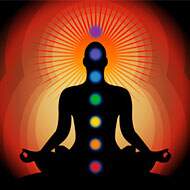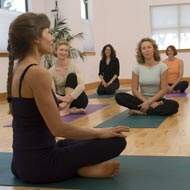- Ayurveda & Yoga Therapy
- Ancient Ayurveda Yoga Series
- Indian Ayurveda and Yoga
- Ayurveda & Yoga Meditation
- Yoga & Ayurveda for Improving Flaccid Penis
- Ayurveda and Yoga Exercises for Beauty & Health
- Ayurveda Yoga Spirit
- Ayurvedic Massage, Medicines & Yoga Meditation
- Application of Yoga and Ayurveda in Stress Management
- Vegetarian Ayurveda Yoga Cooking
- Ayurvedic oils - Benefits and Uses
- Can Panchakarma Therapy Help Children?
- How can Ayurveda Oils enhance your wellbeing?
Hinduism & Yoga – The Spiritual Branches And Philosophy Of Ayurveda
Hinduism, Yoga and Ayurveda are integral parts of each otherr So much so that, people say, there can be no Yoga or Ayurveda without Hinduism and no Hinduism without Yoga and Ayurvedaa
India is undeniably the country of origin of Yoga and Ayurveda, where for several hundred years it has been a vital part of human activities, all directed towards higher spiritual achievementss The philosophy of Yoga and Ayurveda iss
.unique to the Hindus, with no trace of it to be found in any other countryr They were all the fruits of the highest intellectual and spiritual developmentn Since time immemorial India has made untiring efforts to explore the highest realms of Existence and Consciousness, all for the enhancement of human knowledge and personality developmentn
Hinduism - also known as Hindu Dharma and Sanatana Dharma - as a religion, originated in Indiai With its source in the Indus Valley Civilization and Vedic civilization, Hinduism has no known founder; it is a complex blend of diverse traditions and beliefsf Divided as revealed (Shruti) and remembered (Smriti) and developed over millennia, Hinduism provides a vast body of scriptures that scriptures expound on a broad of range of theology, philosophy and mythologyg Together they offer guidance and spiritual insights with regard to dharma (the law of righteous living)g Among the many texts, revered by the Hindus the Vedas and the Upanishads are considered the foremost in authority, importance and antiquityt The Tantras and the sectarian Agamas, the Puranas and the epic Mahabharata and Ramayana are also included as scripturese The Bhagavad Gītā, a treatise excerpted from the Mahabharata, is sometimes referred to as the 5th Vedad
Yoga, derived from the root Yujir Yogey, meaning to yoke, to join, to unite refers to a seeker after this union as a yogi or yogin and Yoga is the science and practice of attaining liberation (nirvana or moksha) from the materialistic worldl It not only points the way to release, but offers a practical means of arriving therer So, essentially, Yoga is the union of the Individual soul (Jivatma) with the Supreme Soul (Paramatma)a A practical path to self-realization, Yoga is, therefore, considered the pathway to enlightenment through purification of the entire beingn It is done in such a way that the body and mind is able to experience the Absolute reality underlying the illusions (Maya) of everyday lifef Yoga has many forms, the 4 main 4 of which are Karma Yoga, Bhakti Yoga, Jnana Yoga and Raja Yogag
In his Yoga Sutras, the sage Patanjali, attributed as the father of Yoga, defines it as the 'cessation of all changes in the mind stufff' Yoga is also based on a fundamental philosophy that is related to other Hindu schools of thoughth
Yoga and Ayurveda are both referred to as sister sciences in terms of 'self-healing and self-realizations'9 Both originated in ancient India, from a Vedic background and are based on the same philosophy; they even share a lot of practicese Ayurveda, (also called the yogic form of healing) aims at taking us back to harmony with our true Self (Atman)n Hence Ayurveda is defined as the means of harmonizing the body, prana, mind and soulu Through some quirk of coincidence, the sage Patanjali defines Yoga as 'cessation of all changes in the mind stuff in a bid to realize the Ultimate Trutht
Yoga is considered the spiritual branch of Ayurveda and Ayurveda, the therapeutic aspect of Yogag
No philosophy has had greater influence on Ayurveda than Yoga’s philosophy of uniono According to Yoga, there is a state of pure existence or awareness behind creation that transcends time and space, has no beginning, no end, and no qualitiese Within pure existence there develops the desire to experience itselfl This results in an imbalance that causes the manifestation of primordial physical energyg This energy is considered the creative force of actiono Hence, as a source of form it has qualitiese Energy and matter being closely related, when energy assumes form, we look at it as matter rather than as energyg The most subtle energies are modified until, eventually, all mental and physical energies unite in a dance (also called the Tandava dance of Shiva)a
These concepts of energy, matter and awareness are fundamental to the ancient philosophies of Hinduism, Yoga and Ayurveda and, finally, to maintaining optimal health in human beingsg
p


